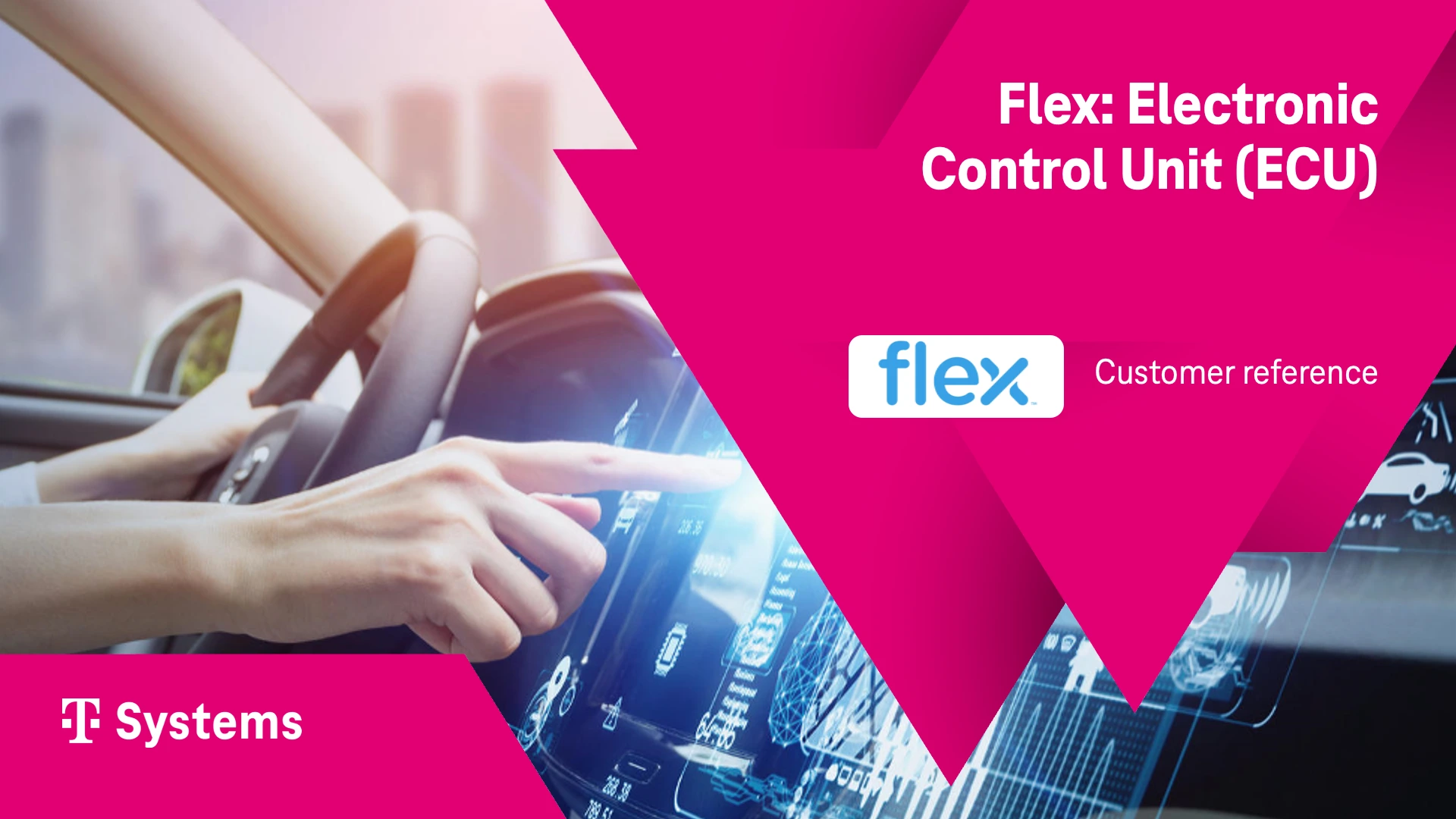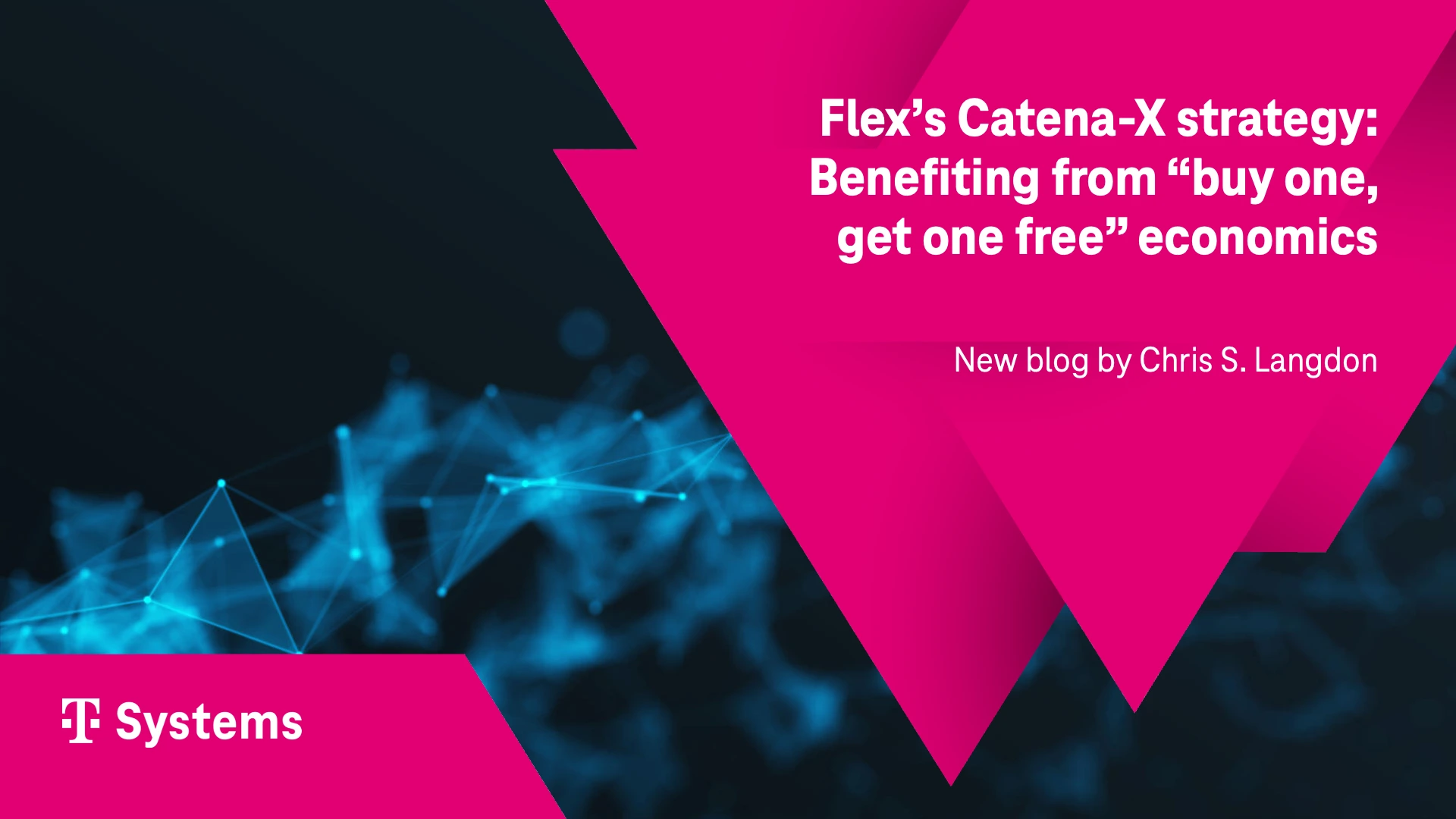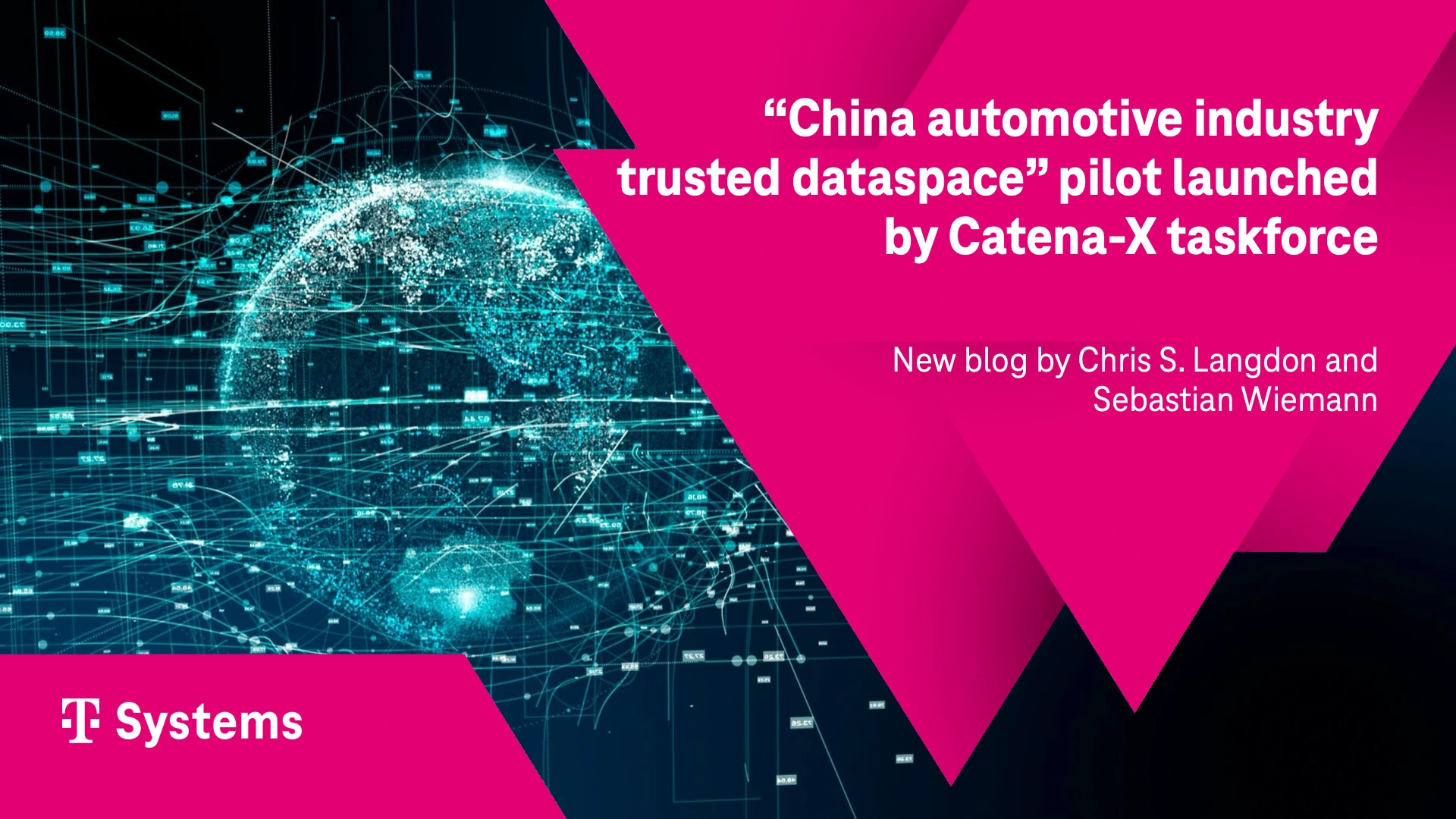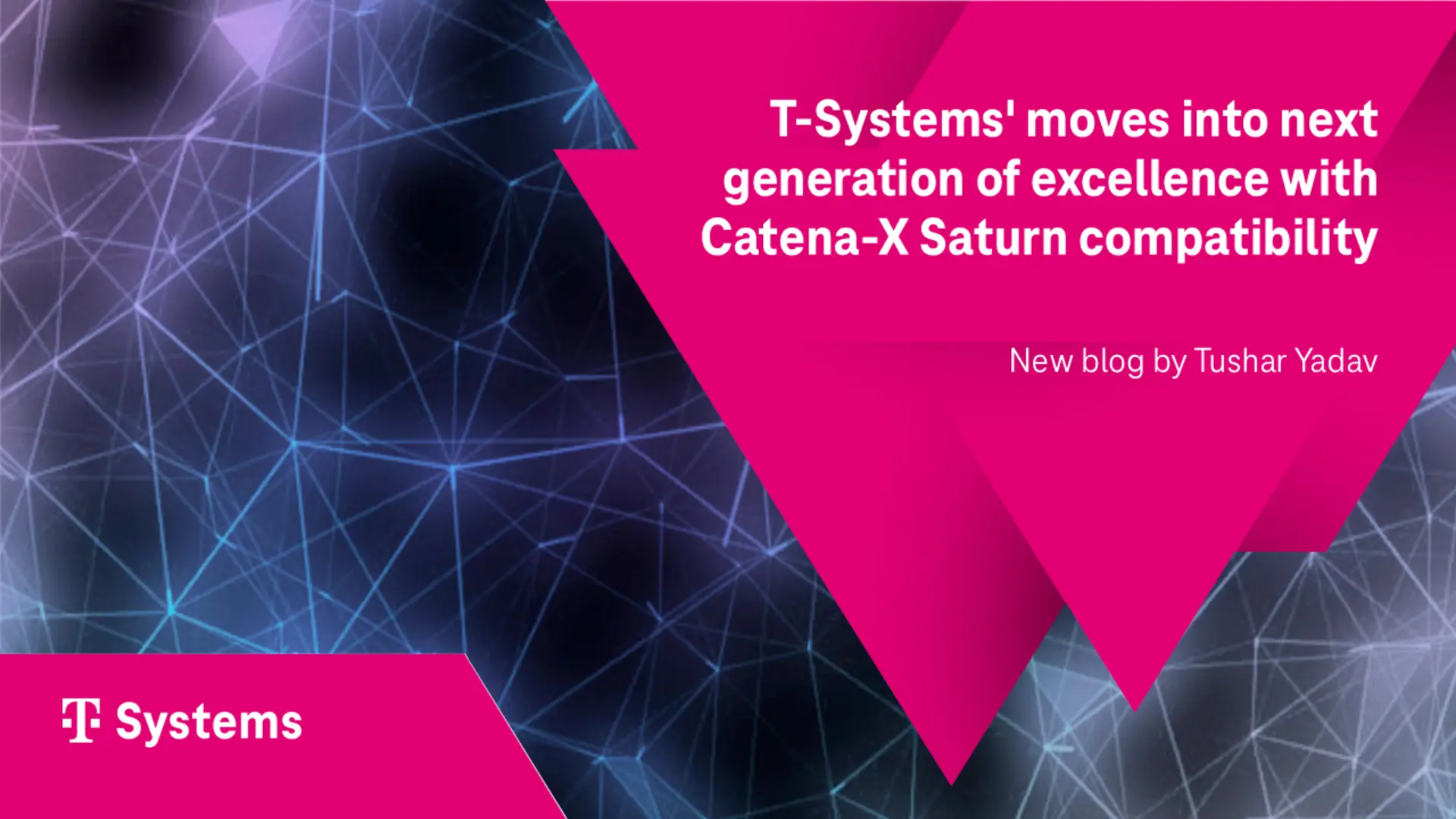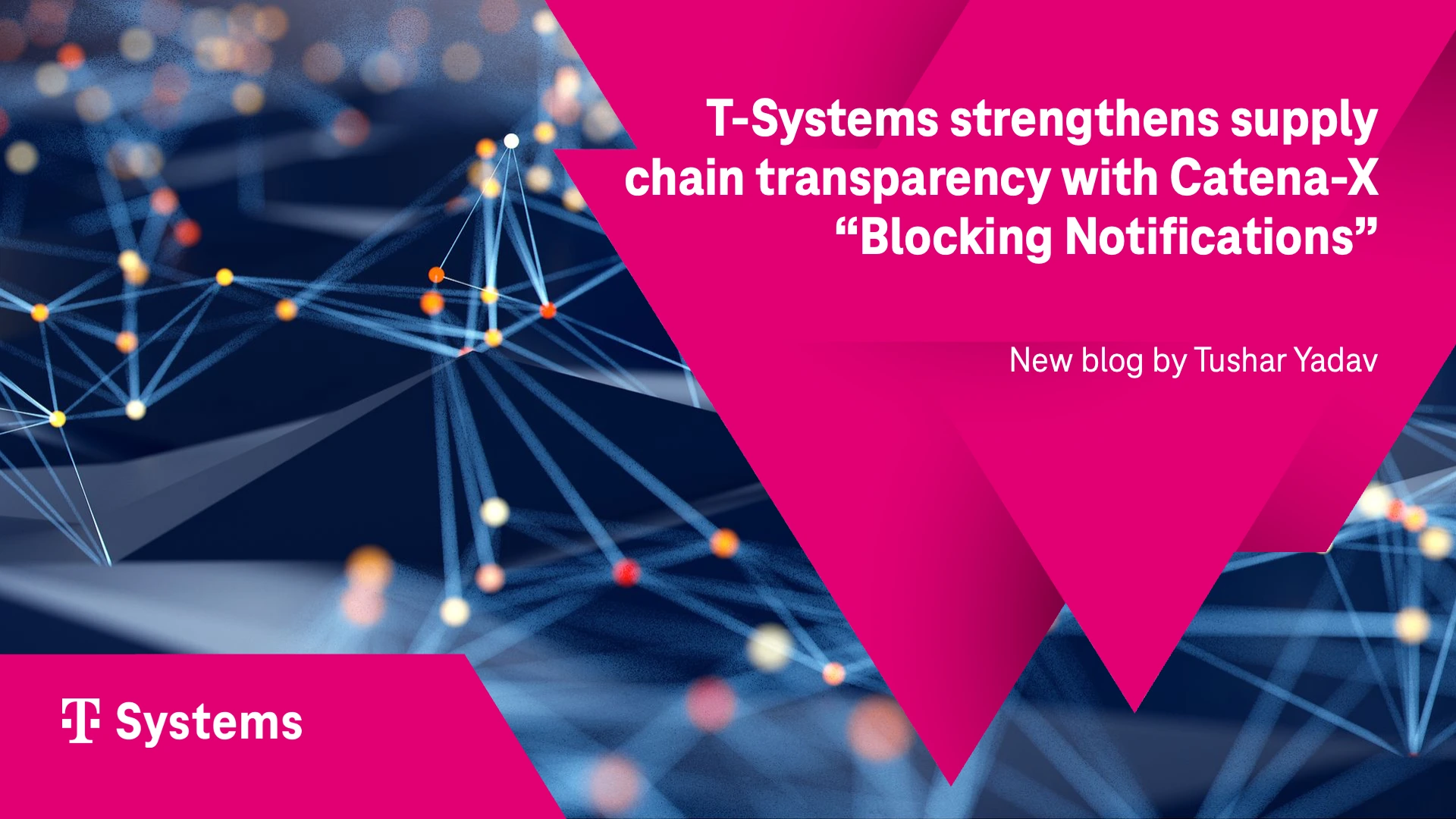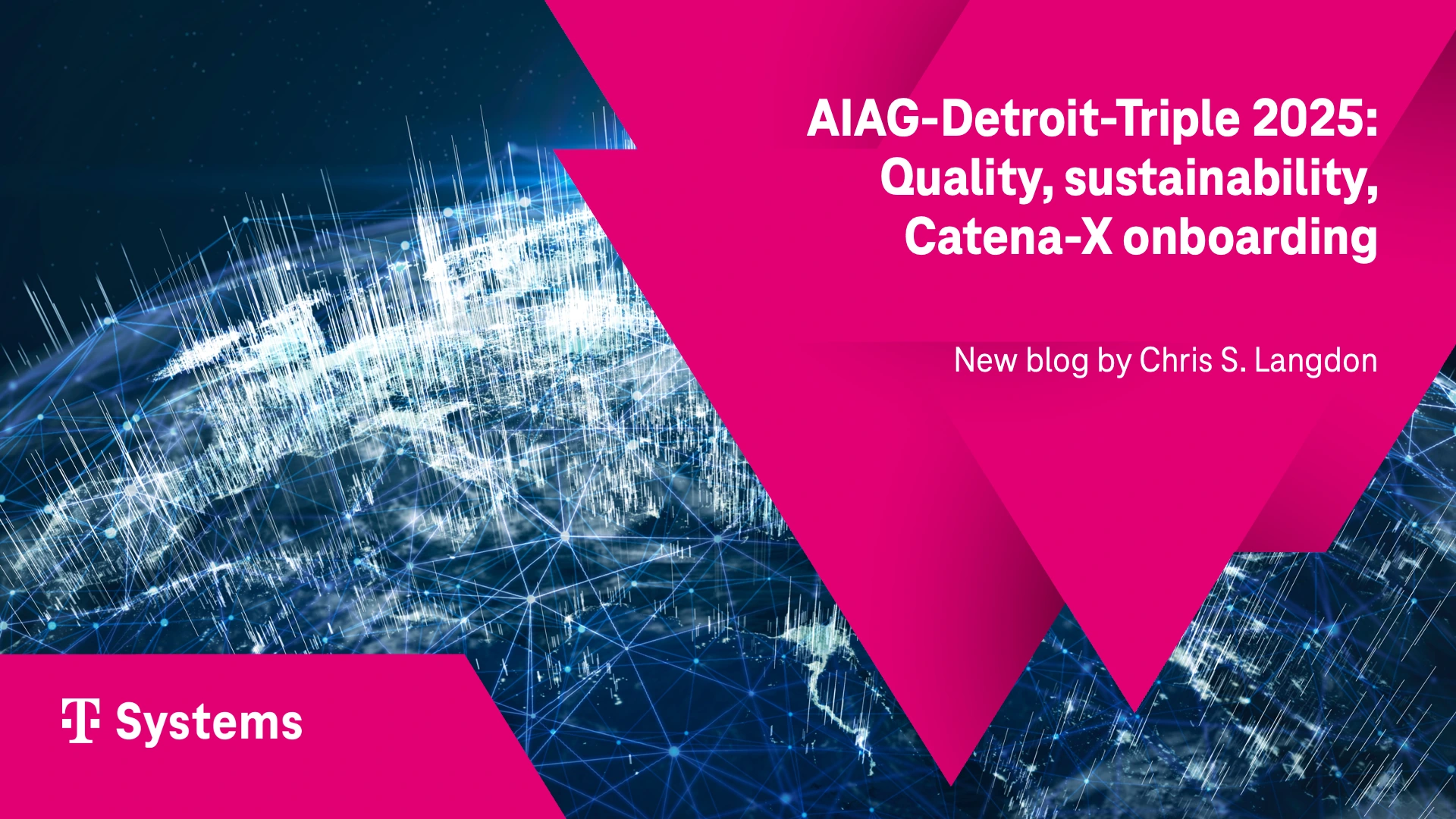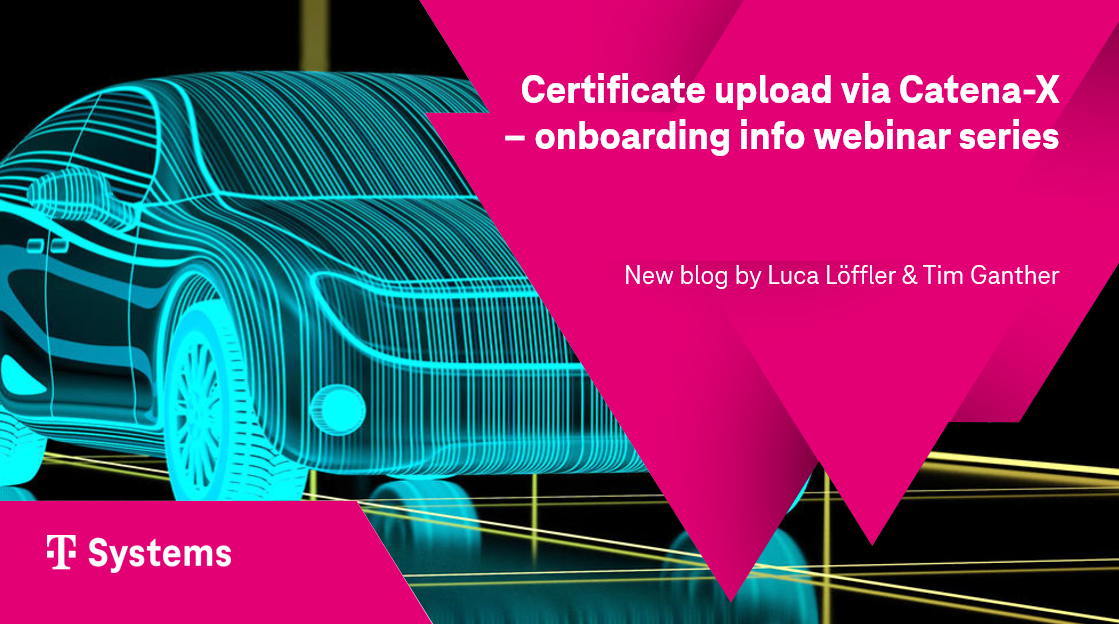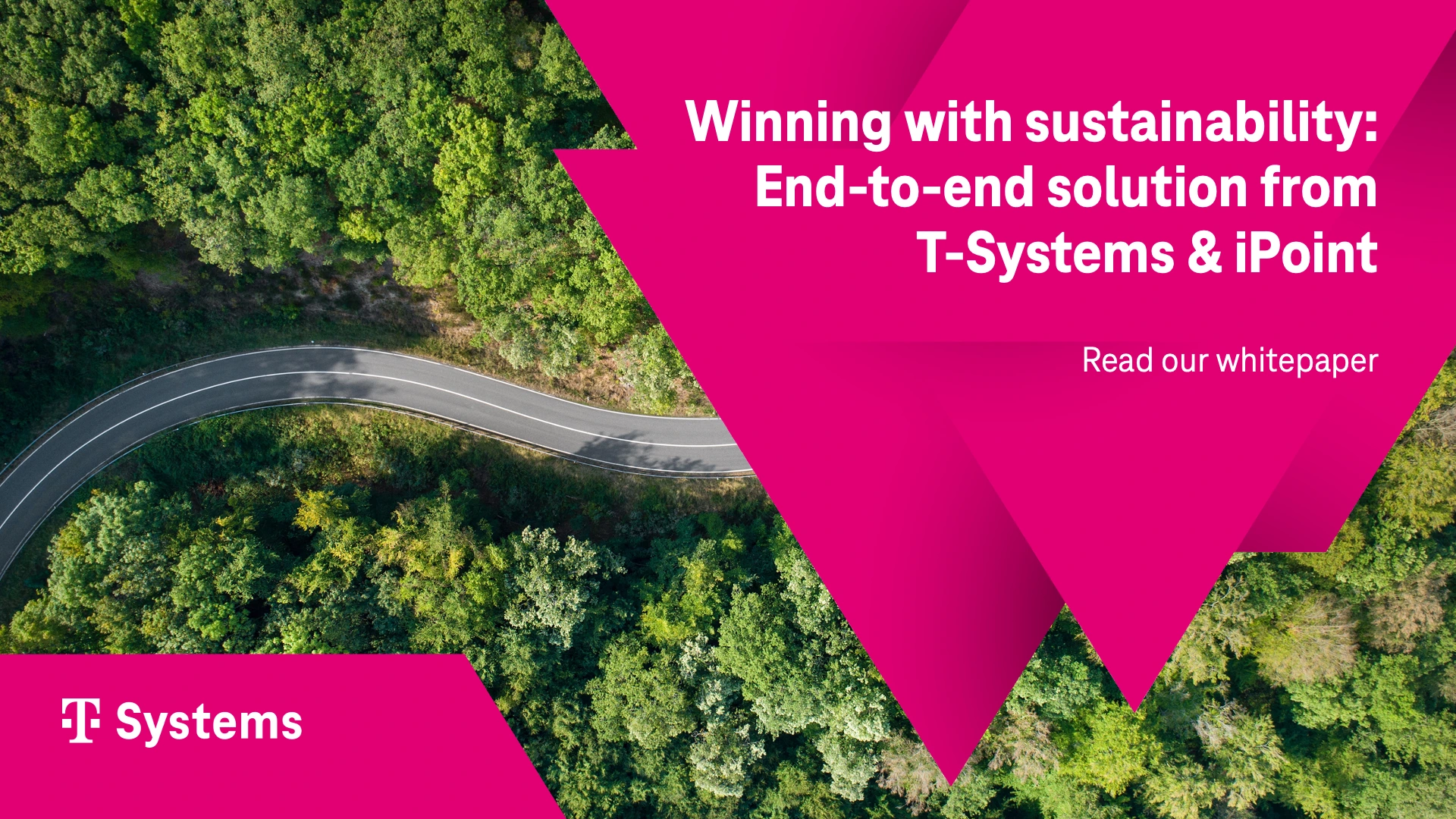Hello dataspace
If it didn’t already exist, given recent innovation in artificial intelligence (AI) such as ChatGPT, dataspaces would have to be invented now. With modern AI, it is becoming increasingly challenging to establish what’s real and how to trust data. A dataspace is a data-sharing (not storage) network that sits above clouds and ensures that a data transaction can be trusted – even between partners who do not trust each other, such as competitors (see “Dataspace Top 10”, link). This magic allows for new data chains, such as digital twins (a) across internal departmental silos, (b) along entire supply chains, and (c) internationally. These data chains in turn enable novel “super-apps” to solve big problems such as product carbon footprint (PCF) tracking for sustainability and material traceability for quality control of batteries – altogether for more resilient supply chains and a more circular economy. Catena-X (Latin for “chain”) is harnessing dataspace innovation to create a blueprint and standards for the world’s first open and collaborative data ecosystem: https://catena-x.net/en/.
Figure 1: Oliver Ganser introduces Catena-X solutions for sustainability and circular economy, backed by a unified dataspace ecosystem and first U.S. supporters from Ford and Flex
Catena-X prelaunch success in North America
With the successful launch of a first operating company, Cofinity-X, which began providing an initial network based on Catena-X standards this spring in Europe, the Catena-X Association is now following global automotive supply chains to North America. It held a prelaunch event on June 5 as a workshop, preceding the Intelligent Infrastructure Conference on June 6-7 in Austin, TX. The Chairman of the Board of Catena-X Association, Oliver Ganser (BMW; see Figure 1 upper right), arrived with members of the Board as well as key ecosystem and application developers from AWS, BASF, BMW, Ford, IBM, Mercedes-Benz, Deutsche Telekom, and Volkswagen (see our event announcement for agenda and speakers).
- Dataspace benefits: The event advanced from basics to first use cases and the dataspace magic of data sharing with built-in data sovereignty protection (what is data sovereignty, see Lauf et al. 2022). Key developers like Niels Angel (BMW) and Thorsten Dikmann (BASF) presented on product carbon footprint (PCF) tracking and battery pass, respectively (see Figure 1 lower right).
- Initial success: The event activated pioneers that stepped forward to commit to working on initial prototyping activities and a Catena-X Hub North America. The team includes automotive heavyweights and leading outfitters: Ford and Flex; and AWS and Deutsche Telekom’s T-Systems, a sister company of T-Mobile (see Figure 1 lower left: Oliver Ganser, Nicole Stevenson (Flex), Pramita Mitra (Ford), Jeff Schlageter (IBM), Chris Langdon (Telekom)).
One system: Catena-X & Eclipse Tractus-X, Gaia-X, and IDSA
Figure 1 (upper left) presents the unified nature of the Catena-X system. It shows the closing panel of the event with all key dataspace technology initiatives sharing the same stage (from left to right): Moderator Prof. Dr. Frank Koester of German Aerospace Center (DLR) and Gaia-X mobility lead; Thomas Reusch of ZF and Co-CEO of the first operating company Cofinity-X; Prof. Dr. Chris Schlueter Langdon of Deutsche Telekom and Co-Product Manager of the Catena-X software; Lars Nagel, CEO of International Data Spaces Association (IDSA); and Roland Fahdrany, COO of Gaia-X:
- Cofinity-X network is using blueprints from Catena-X Association and software provided by the Catena-X consortium.
- Catena-X consortium is a EUR 250 million software development project that received seed funding of approx. EUR 110 million from the German government to encourage a coalition of 28 competing automakers, suppliers, and outfitters into creating a first unified system (Scholz 2022, BMWK 2021, Delhaes 2020). The software is continuously evolving and observing the three key principles of internet success:
- Maintain an open source core, which is now available in the Tractus-X project under the Eclipse Foundation: Eclipse project, Corresponding GitHub, Changelog.
- Pursue a decentralized architecture.
- “Don’t reinvent the wheel” but use a “best of breed” approach instead to provide solutions for key system features like trust and interoperability.
- Gaia-X for trust: The Catena-X system is relying on solutions from the Gaia-X European Association for Data and Cloud AISBL, an international non-profit association under Belgian law with over 340 members, to uphold the values of data protection, transparency, openness, security, and respect for data rights (link). Specifically, Catena-X is compliant with the Gaia-X trust framework 22.10 (Gaia-X 2022)
- International Data Spaces Association (IDSA) for interoperability: When Catena-X launched in 2021 it used the architecture or Reference Architecture Model (RAM) of the IDSA (link) to ensure widespread interoperability (Otto et al. 2019). The IDSA has more than 130 members committed to creating the future of the global, digital economy with “a secure, sovereign system of data sharing in which all participants can realize the full value of their data [… involving] new ‘smart services’ and innovative business processes to work across companies and industries while ensuring that the self-determined control of data use (data sovereignty) remains in the hands of data providers” (What we do and why it matters, link)
Good old networking
Given today’s interconnected global landscape, international networking is key for fostering cross-cultural understanding, building relationships, and gaining valuable insights into different industries and markets. In Austin, this involved breakfast meetings at a specialty coffee shop (Figure 2 top left), traditional Texas BBQ (Figure 2 top right), and mingling and strategizing downtown (Figure 2 second row).
- Coffee shop (from top left clockwise): Oliver Ganser (BMW), Frank Koester (DLR), Thomas Dikmann (BASF), Chris Schlueter Langdon (Deutsche Telekom), Thomas Roesch (ZF)
- Texas BBQ (from left to right): Ulrich Ahle (Fiware), Gerard van der Hoeven (iShare), Roland Fadrany (Gaia-X), Chris Schlueter Langdon, Lars Nagel (IDSA), Florian Buehr (HPE), IBM Redhat expert
- Downtown: Lars Nagel, Gerard, Forian, Philipp Cases (Topio Networks and host of the Intelligent Infrastructure Conference)
- Rooftop & pool: IBM Redhat expert, Steffen Turnbull (DLR), Florian, Chris, Gerard, Philipp, a Topio employee … and Chris and Lars “strategizing” on IDSA interoperability.
References
BMWK. 2021. Industrie und Politik im Dialog zur digitalen Zukunft der Automobilindustrie - Bundeswirtschaftsminister diskutiert mit Vertretern des VDA. Gemeinsame Pressemitteilung (2023-02-03), Federal Ministry of Economic Affairs and Climate Action, link
Delhaes, D. 2020. Merkel drängt Autokonzerne: BMW, Daimler und VW sollen Datenschatz teilen. Handelsblatt (2020-10-28), link
Gaia-X. 2022. Gaia-X Trust Framework - 22.04 Release. Gaia-X European Association for Data and Cloud AISBL, Bruxelles, Belgium, link
Otto, B., S. Steinbuss, A. Teuscher, and S. Lohmann. 2019. Reference Architecture Model Version 3.0 (April). International Data Spaces Association, Berlin, link
Lauf, F., S. Scheider, J. Bartsch, P. Herrmann, M. Radic, M. Rebbert, A. T. Nemat, C. Schlueter Langdon, R. Konrad, A. Sunyaev, and S. Meister. 2022. Linking Data Sovereignty and Data Economy: Arising Areas of Tension. Best Paper Award at the 17th International Conference on Wirtschaftsinformatik (WI22), link
Scholz, O. 2022. Rede von Bundeskanzler Olaf Scholz zur Festveranstaltung der Deutschen Akademie der Technikwissenschaften am 18. Oktober 2022 in Berlin. Bulletin der Bundesregierung Nr. 134-1 (21. Oktober), link





